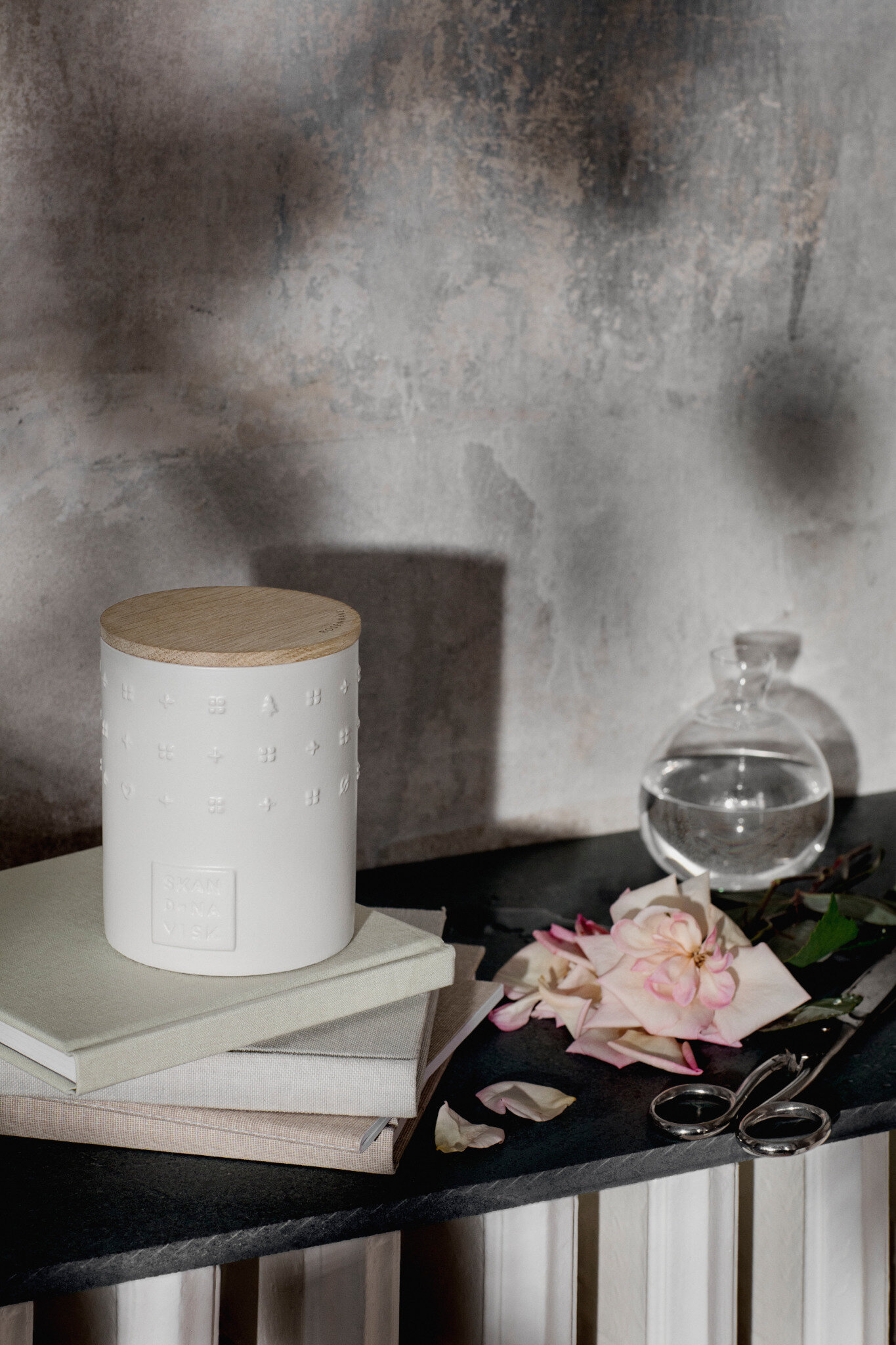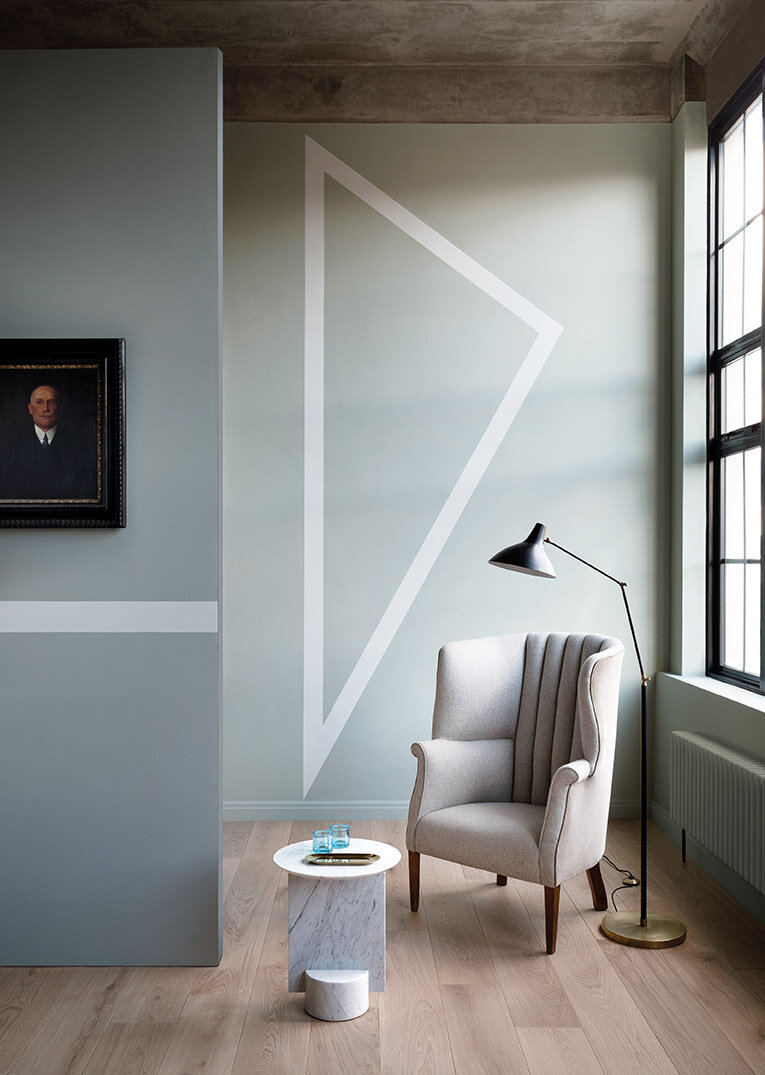Successful scents; why you should trust your feelings, not obey the rules
We often underestimate the unique abilities of scent, overlooking their undeniable link to our emotions, feelings and memories. We explore the importance of trusting your feelings, rather than obeying the rules around aromas.
We’ve all been there. That moment when without warning, a scent hits your nose and you’re transported back to another time and place. A sudden change of feelings ensues, not dissimilar to deja vu, that sudden feeling of having been somewhere before. Our memories transport us back before we consciously understand why, it’s intuitive and can be comforting or destabilising for our emotional wellbeing.
Scents are processed in the olfactory cortex of the limbic system, which is an area of the brain closely located to where our emotions and memories are stored. Individual aromas are made-up of molecules which the nose senses through vibrations, sending a signal to the most emotional aspect of our brains. This biological process subsequently affects our experiences, whether that be at home or in the outside world. Once we understand this natural human behaviour it makes obvious sense why we feel the way we do when we encounter aromas; it’s not something we can avoid, it’s built into our individual foundations.
Creating ambience and mood with scents
Whilst scent is one of our most influential emotions is also the easiest to harness, how we encounter a space and our emotional connection to it can be consciously manufactured to improve our well being. By using a strategic approach to incorporating scents within a space we have the power to determine the ambience or mood - whether that be to stimulate, comfort or calm, with the added advantage of not needing to invest heavily.
A practice you have most likely already heard of, aromatherapy, is known for its holistic approach and utilises scent to improve both psychological and physical health. Listed below are scents commonly used within the practice, all of which can be harnessed for the needs of an individual space.
Cinnamon is an emotional stimulant, known to reduce stress and encourage a focused mind.
Eucalyptus eliminates negativity, purifying spaces to create a fresh atmosphere.
Cedarwood balances our psychological emotions but is considered an equally powerful physical health stimulant.
Sandalwood creates a calm and inspiring atmosphere and so is a powerful antidepressant.
Patchouli can often be found in its purest natural form, producing an uplifting, regenerative feeling.
Rose is a powerful scent, creating balance for a stress free environment.
Lavender creates a serene atmosphere which calms and relaxes.
Scented candles are an ideal way to add natural serenity to a space, with aromas that gradually build. Using candle light in the evening when winding down is also another natural way to control our mood, a way of avoiding bright LED lights which confuse our body clocks and keep us alert.
The intensity of a fragrance also determines how quickly we notice or recall memories from it and so it’s important to also consider the level of scent we apply within a space.
Balancing indoor air
Burning candles within modern air-tight spaces does incur unfortunate side-effects on the quality of air we’re breathing in. You may be surprised to learn that candles, air fresheners, plug-ins and scented bleach wipes all emit the chemicals used to create their fragrance, which when released into the air lower the quality of air we’re breathing in.
Introducing humble house-plants is in instant remedy to this, just like nature outdoors, indoor botanicals have the power to clean the air around us; removing any chemicals released.
Scent is fundamental to the success of an interior design scheme.
Trusting and acknowledging your feelings is the only way to successfully create atmosphere within your space. Although intangible, scent is a powerful tool which creates atmosphere, truly individual to you and your space.
A personalised environment is at the core of what we aim to achieve here at Rachel Usher Interior Design which is why we spend time getting to know your true individual needs for a space. We don’t follow or obey the rules, we create new ones with you; relecting your past present and future...
An emotionally considered home
A successful interior scheme enhances the way you experience a space whilst reflecting your individuality. We explore the importance of design that’s emotionally considered.
When designing a space it’s important to look attentively at all the various elements of a room. Practicality is important but consideration of the mood and the various senses that form this are equally significant in the design process; including intangible components such as scent. We are of course, all different. Individuality should direct how each sense is harnessed to form a nurturing, emotional connection; customising the space to create a unique experience. Rachel Usher explains;
“Design affects our senses, whether that be in the way that we interact with light and space, the texture of materials or the furnishings used; all of these elements directly affect the comfort & purpose of a space, relating to how we feel and influencing our emotional wellbeing
”
For most of us, escaping the stresses of daily life is the most important factor we look for in our home environments and understanding the different senses we’re surround by in our dwellings is a good place to start in creating a mindful space.
Our vision senses have the ability to change our behaviour, how we interact with light for instance can dramatically influence our sleeping behaviour; for a relaxing evening it’s best to avoid bright LED lights as the blue wavelengths keeps us alert, confusing our natural body clocks and would be better served in an office space where productivity is key. Lamps or candles that emit a warm glow are more ideal for winding down at night and the spaces we gravitate towards in the evening should take this into consideration.
Colour informs every aspect of our daily lives, our reactions are often emotional but also intuitive, without us even noticing. We’re often drawn to colours we like without considering their impact; where and how colour is used should again be mindfully considered.
“It is the interplay with our senses that creates an experience, for example the use of colour can evoke feelings of warmth and comfort if applied correctly; considering the size and purpose of the space”
Although intangible, our sense of smell has the ability to provoke deep emotions within our brain and likes or dislikes are often based purely on these emotional associations.
Harnessing our sense of smell is incredibly important, scents have an ability quite unlike anything else; to unlock memories and transport us perhaps to a time and place long forgotten.
“The scent of a space’s is as fundamental to the success of a design as the use of colour or texture”
Notably, our sense of touch is the most significant as our entire body is receptive to tactile qualities. We are directly affected by the use of different materials and respond to them, again, in an often personal way. We learn from our sense of touch and make judgments from these, developing deep associations which directly affect our thoughts and feelings.
So when designing a space, whether that be a home or social environment it’s undeniably important that emotional needs are fully considered. Our wants often over-power our needs but by acknowledging these personal feelings and reactions we’re able to ensure that both align; providing balance.
Designing an emotionally considered space is important, after all, you literally have to live with it. If you’re in the need of professional expertise please do get in touch; our interior design services are flexible, allowing us the freedom to cater to projects of various sizes. We work closely with all of our clients to realise imaginative spaces which truly reflect your vision and aspirations to enhance your at-home-experience.









